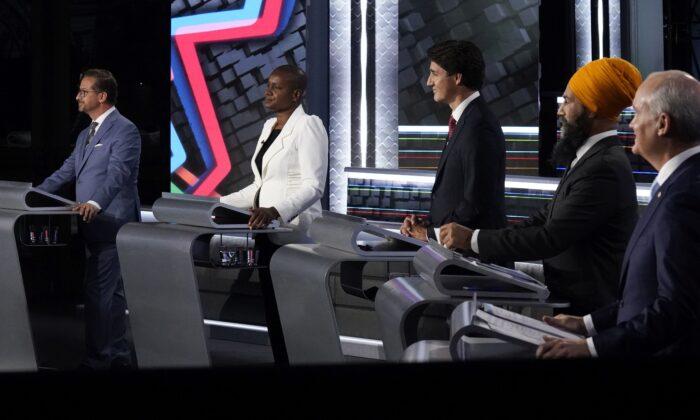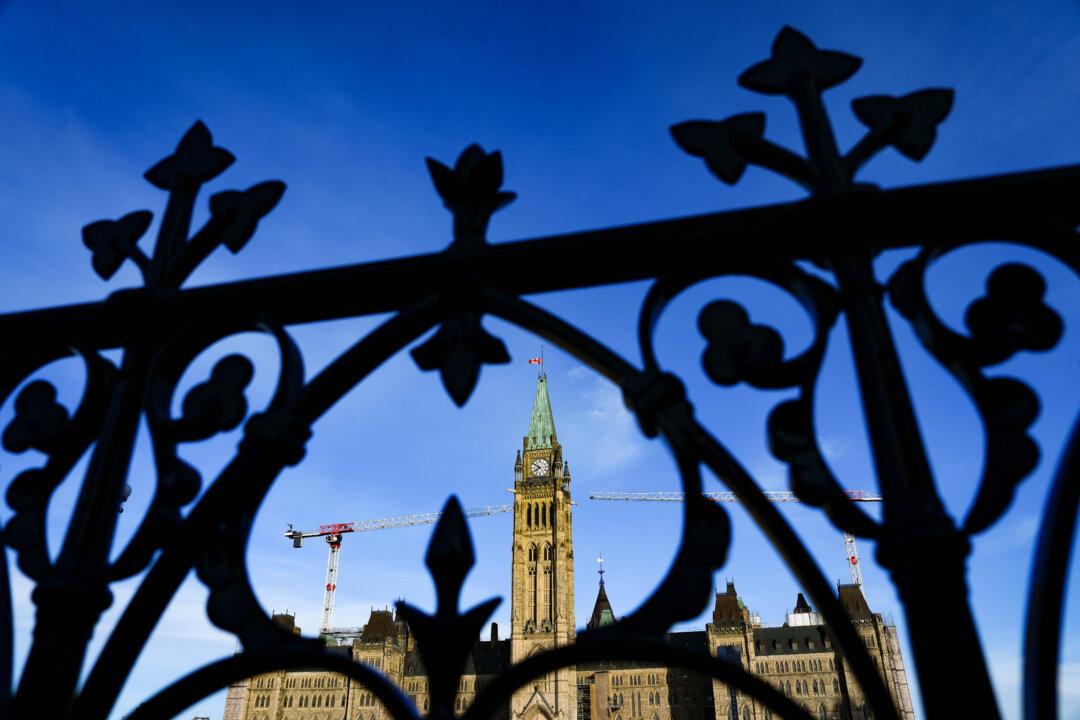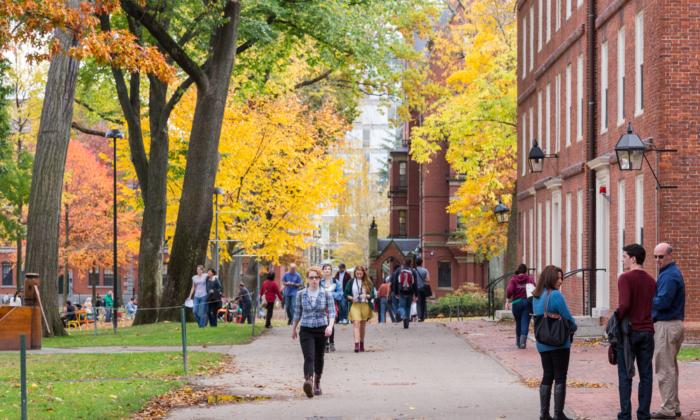Despite the remarkable rise in federal debt in the two years since the last election, the issue of how to rectify the structural deficit wasn’t raised until almost the end of the Sept. 9 English leaders’ debate.
Only during the final 11 minutes of the two-hour debate was Liberal Leader Justin Trudeau asked, “What do you say to the next generation who say, ‘How are we going to pay for this?’”
Trudeau answered that the Liberals had a “fully costed platform” and that “the debt of our country as proportioned to the GDP continues to decrease.” NDP leader Jagmeet Singh said, “We’re not going to cut any programs,” and Green Party leader Annamie Paul told Singh, “You’re trying to ghost me,” implying that her party would not cut either.
Conservative Leader Erin O’Toole pointed out Trudeau was “spending $424 million a day more than Canada’s bringing in.” Yet, when asked “What programs will stay?” O’Toole only said, “We need to wind down support programs in a fair way and get the country working again.”
Tom Flanagan, professor emeritus of political science at the University of Calgary’s School of Public Policy, is unsurprised at the soft responses and the low priority given to such questions.
“It’s consistent with the current public opinion in Canada. People don’t seem to be concerned about the size of the debt. ... If you look at the three major parties with their platforms with respect to fiscal responsibility, it’s really a question of bad, worse, and worse,” Flanagan told The Epoch Times.
In July, the Parliamentary Budget Officer estimated that without a reduction in spending, the federal government is projected to borrow another $2.7 trillion before finally balancing the budget in 2070. O’Toole pledged on Aug. 31 to balance the budget “without cuts” to public services.
Flanagan said O'Toole’s approach is reminiscent of the partial but inadequate handling of deficits by Brian Mulroney’s Progressive Conservative government that followed Pierre Trudeau’s era.
“It reminds me of the 1970s and ’80s. Anybody with any insight could see that we were on an unsustainable track, but it wasn’t arousing much popular concern until fall 1994 when [it became apparent] the Canadian dollar might be devalued,” he said.
“Some people never really lived with the negative consequences of deficits because they were born afterwards, so they have no experience of what can happen. And other people have, [but] their memory has sort of dimmed, I think. So now prolonged spending seems like the way to go. The lesson of 2015 is, the party that sticks with fiscal responsibility doesn’t get any reward for it from the voters.”
In 2015 voters chose the Trudeau Liberals, who promised deficits, over the NDP and Conservatives, who promised balanced budgets. Steven Ambler, an associate professor of economics at the Université du Québec à Montréal, said balanced budgets have become less important because it’s cheaper to service the debt now.
“It is different now than it was in the ’90s just because we’re living in an environment of low real interest rates, not just in Canada, but worldwide. That I think, has led to this complacency.”
The English debate started with the topic of foreign relations, then climate change and green energy, reconciliation with indigenous peoples, and a more affordable and higher quality of life for Canadians. Tax cuts were never mentioned in this context, only more government spending.
Ambler said a universal basic income, discussed briefly during the debate, has limited merit. He said economists such as Friedrich Hayek and Milton Friedman supported the concept of a negative income tax system but only if other welfare systems were scrapped.
“It’s the private sector and small business that creates the most jobs. And the best thing to do is to have a low-tax environment and keep out of the way and let the private sector create the jobs,” he said.
“By expanding the role of government, even subsidizing things like public daycare, you’re hampering growth and you’re going to make the problem really explode at a certain point. We’re going to go along thinking that things are getting serious, but it’s not too serious, and then it could really flip overnight.”






Friends Read Free